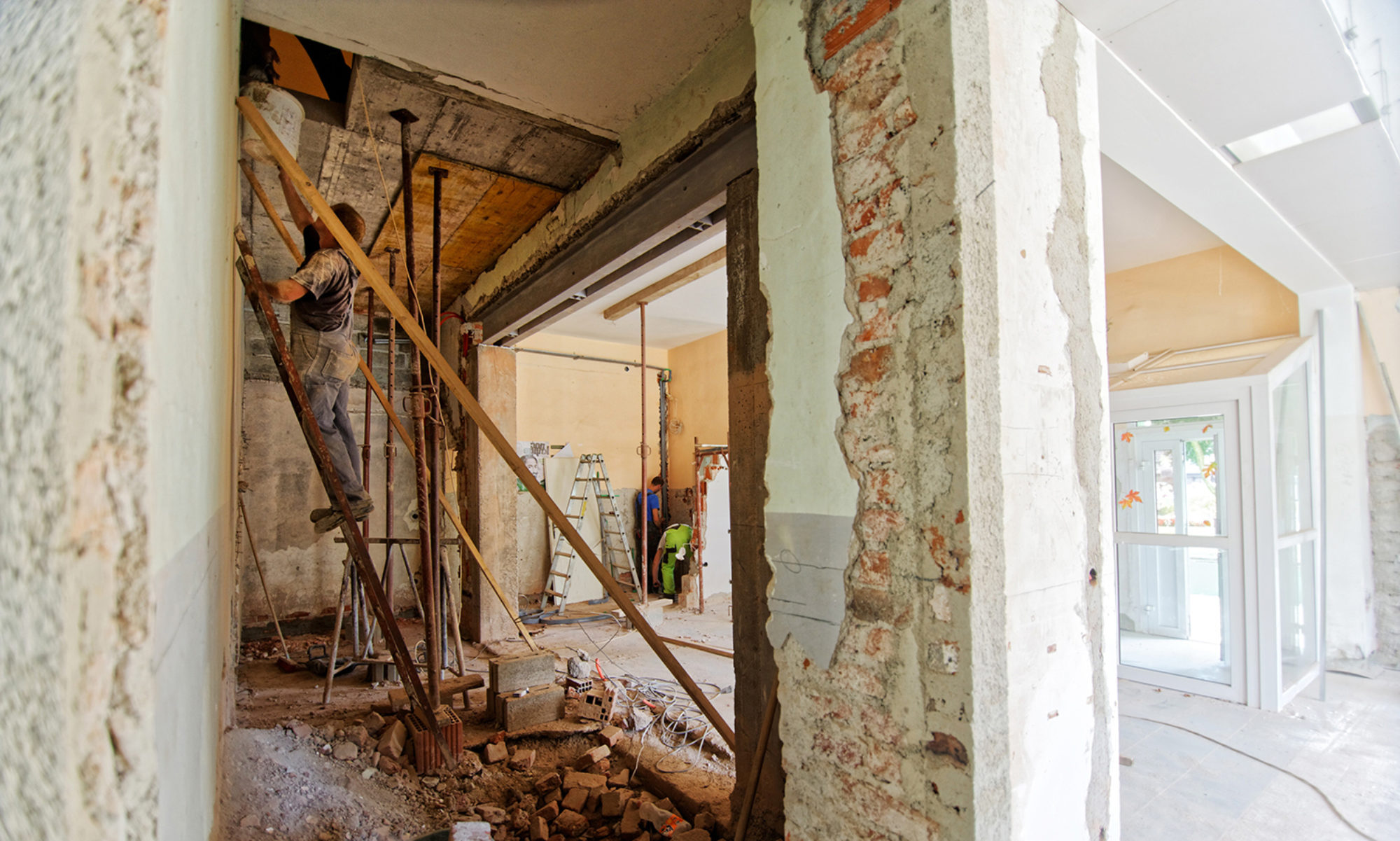Bathtub Types: Freestanding, Clawfoot, Walk-in, Alcove and Drop-in Tubs
Planning to buy a bathtub and wondering which is the best installation type for you?
Read on to find out the characteristics, pros and cons of freestanding, clawfoot, walk-in, alcove and drop-in tubs.
Page Contents:
Freestanding tubs
These stand-alone tubs are clean, elegant and easy to install.
As they look better with some empty space around them, freestanding tubs are ideal for larger bathrooms.
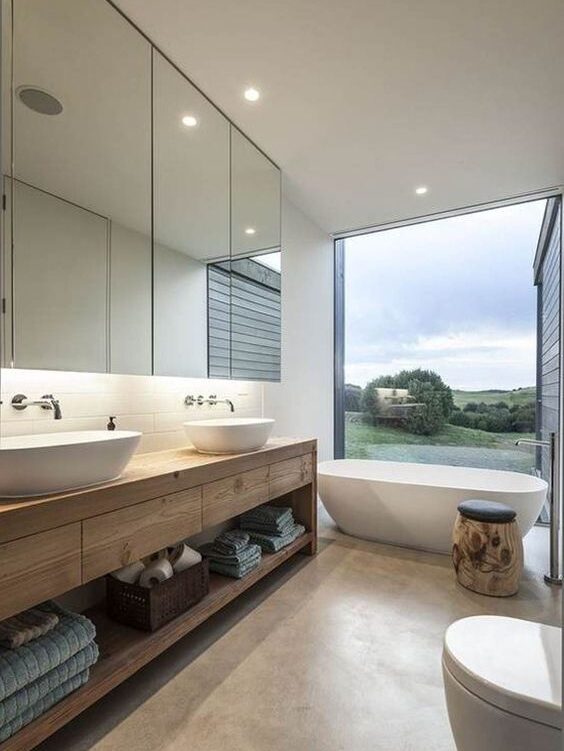
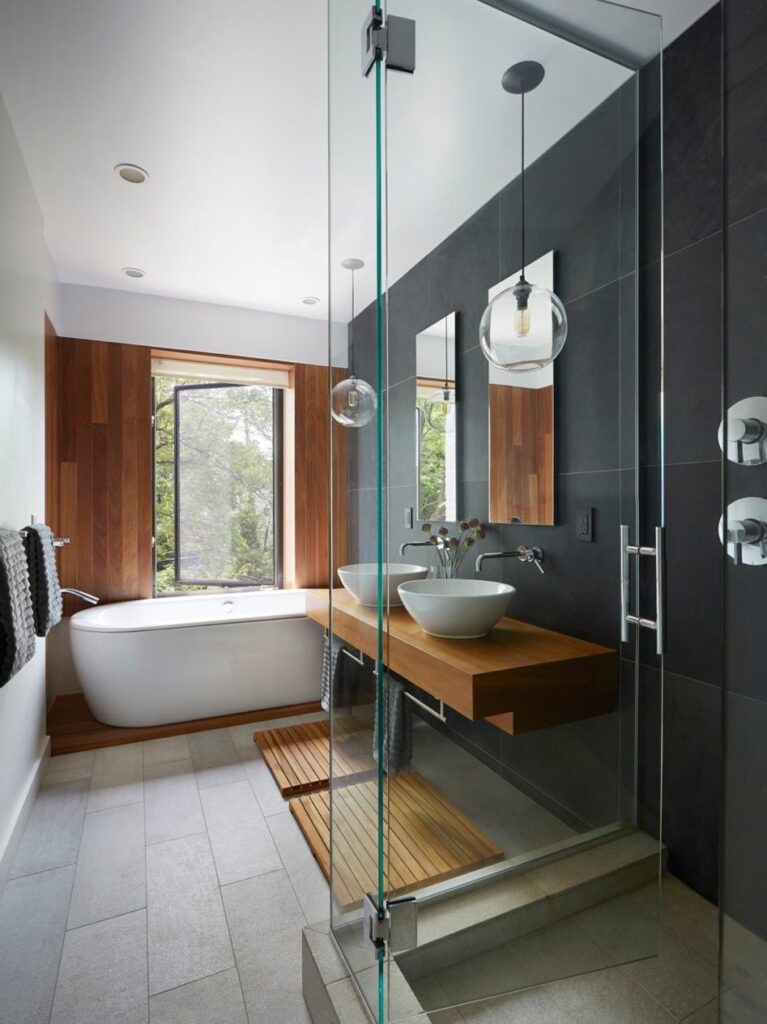
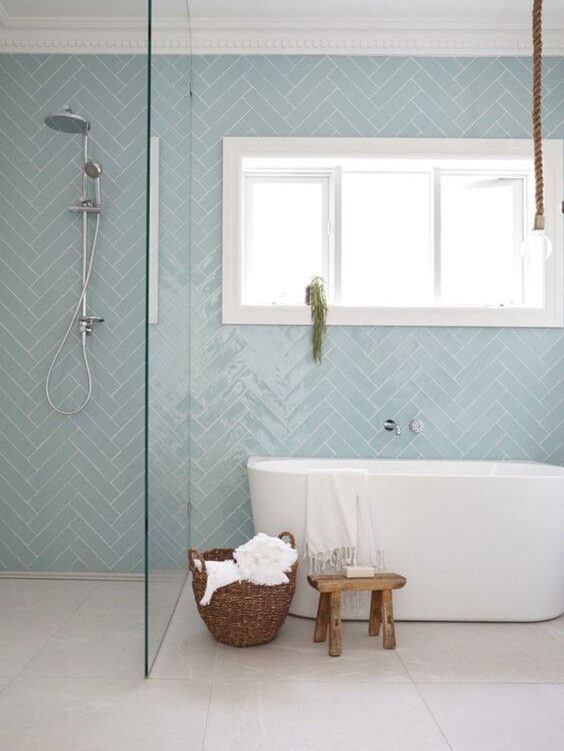
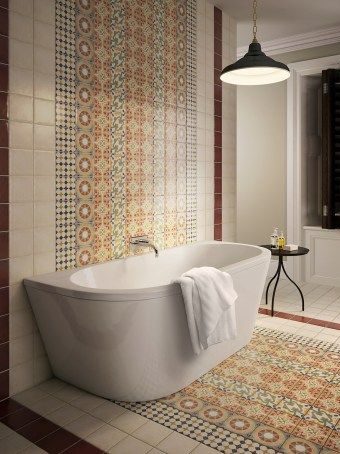
Clawfoot tubs
This specific type of stand-alone bathtub is raised from the floor, supported by metallic legs.
So they can be raised, these tubs need a more resistant structure, which makes them more expensive.
Their retro style can be used in retro decorations, but is also nice to contrast it with modern materials.
As other freestanding models, clawfoot tubs look better in large bathrooms.
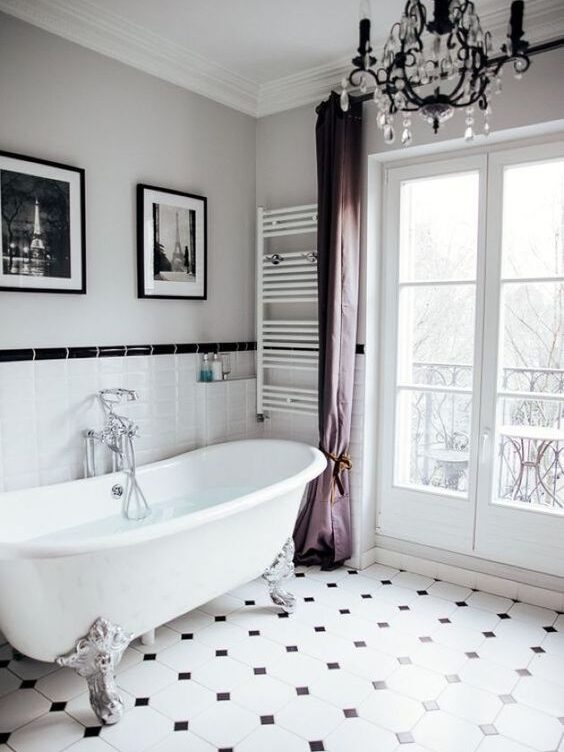
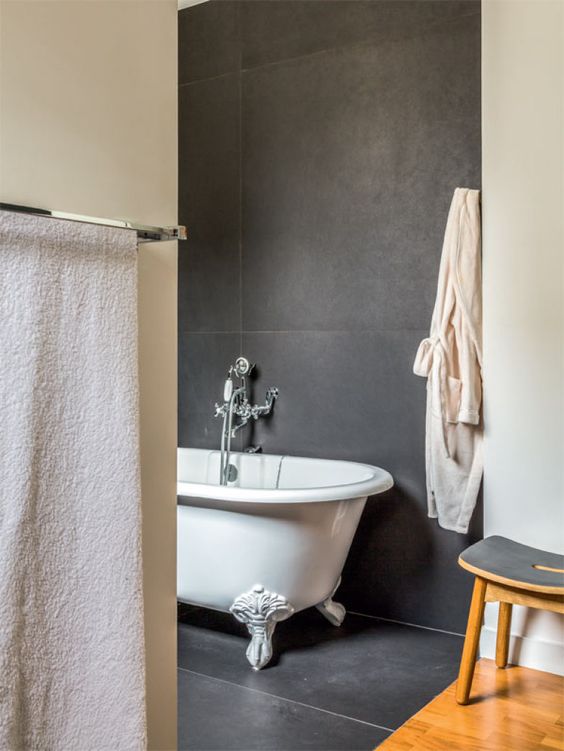
Walk-in tubs
Also a type of stand-alone tub, walk-in models have a door that makes them accessible to elder or handicapped people.
They usually include safety items, like grab bars and slip-resistant floors.
Walk-in tubs are really practical, but not as elegant as the other types.
Another con is that, except for some freestanding tubs with special designs and materials, this is the most expensive option.
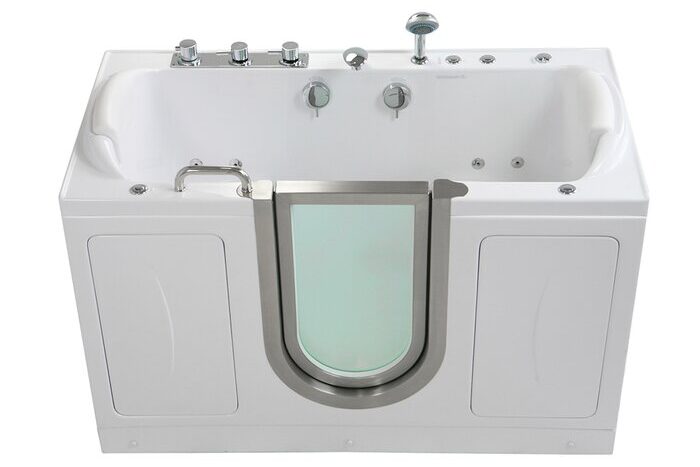
Alcove / Tile-in tubs
The cheapest type of tub is also a stand-alone one. The difference is it has 3 unfinished sides and one finished front.
Therefore, they are made to be installed into 3 walls with their exact dimensions. These walls can be built floor-to-ceiling or just up to the tub’s height.
The rectangular shape of alcove tubs makes them a good choice for tub-shower combinations, since it is easy to close above the tub with a curtain.
Also a wall-mounted shower will be close enough, as opposed to freestanding or clawfoot tubs, that require empty space between the tub and the walls.
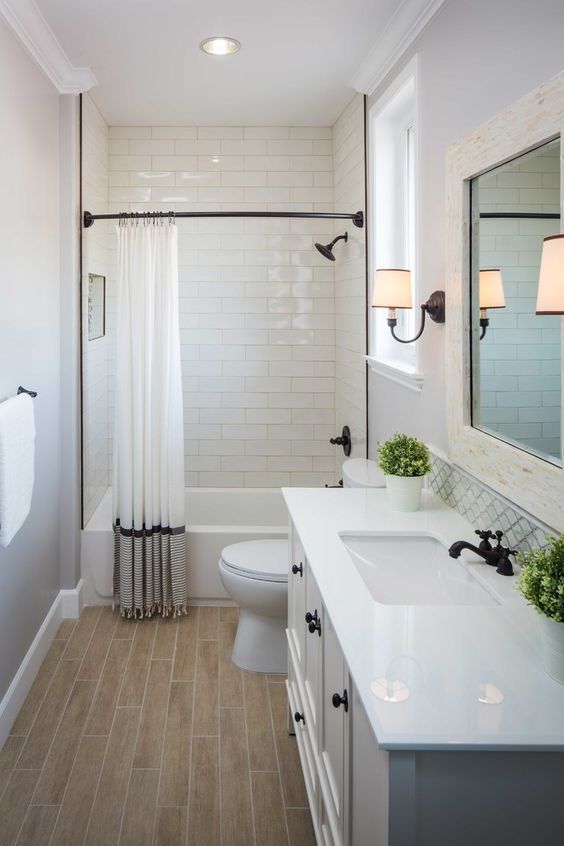
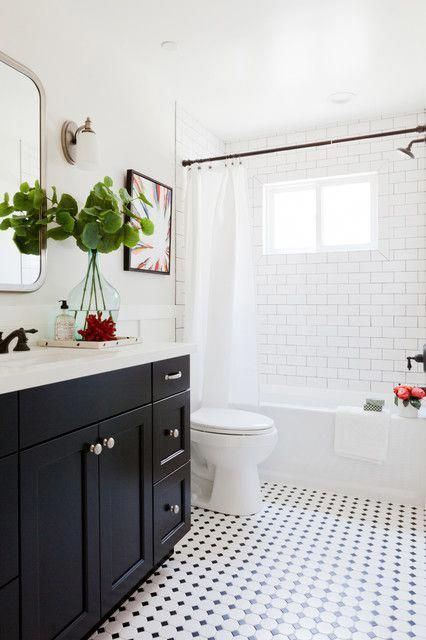
You can also replace a wall for anything that hides the unfinished side, like a wooden cabinet. This is a good solution so you can use this type of tub even with a larger space.
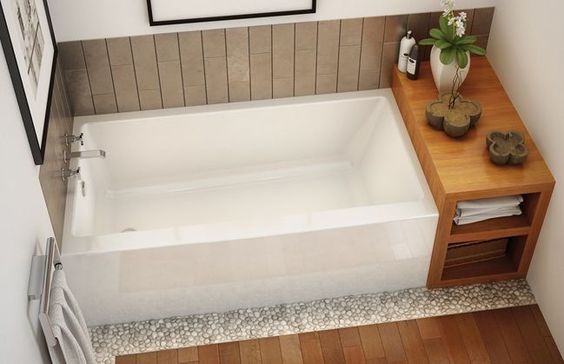
Drop-in tubs
Designed to sit inside a separately built enclosure, drop-in tubs require a more complex and pricey installation.
On the other hand, you can pick the tub’s external finish and make it match the rest of your bathroom’s decoration.
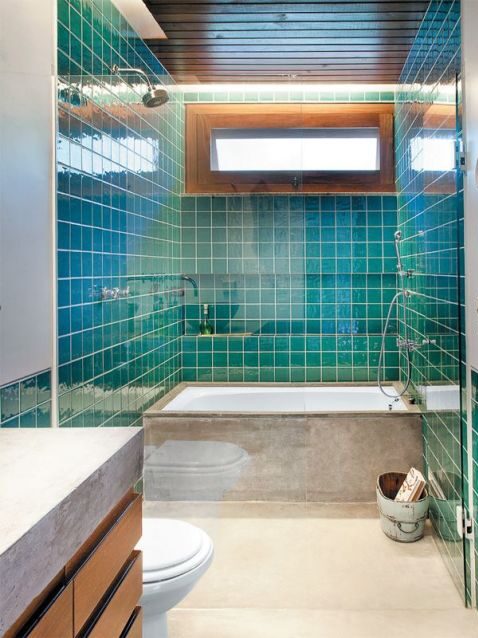
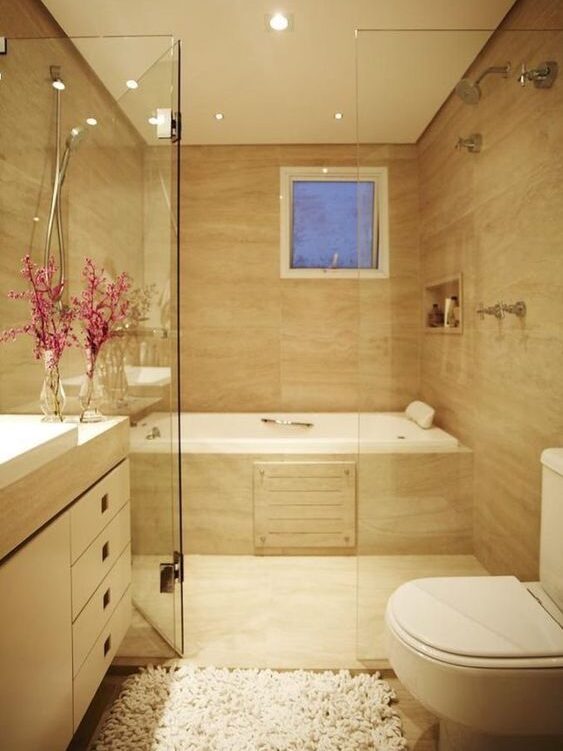
These tubs are called drop-in because they have a lip over the surface where they are embedded. If you don’t want the lip to be visible, you can add another layer of the finishing material and make it an undermount tub.
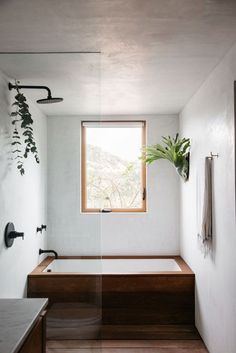
That’s all! Have you decided the ideal installation type for your tub yet? Freestanding, clawfoot, walk-in, alcove or drop-in?
Make sure to also learn about types of therapy, sizes, shapes, faucets and shower combinations before you choose your favorite model.
